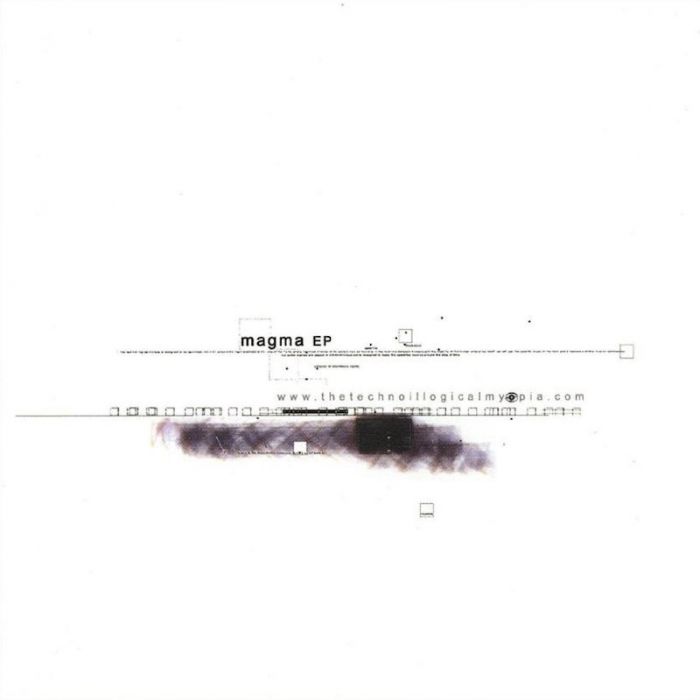Magma EP by The Technoillogical Myopia (Review)

When I first began getting into music back in high school thanks to the Cures and Depeche Modes of the world, there was only one radio station that I listened to — the mighty 103.7 KXKT. At that time, country music was on the rise, with one station after another rising to pollute the airwaves with “Achy Breaky Heart,” whilst everything else programmed the usual combo of oldies, dead-but-didn’t-know-it-yet classic rock, and top 40 pap.
Only KXKT stood alone, playing actual “alternative” music (back when that term actually meant something), and I spent many hours holed up in the bedroom, taping shows and listening to whatever eclectic blend the DJs might come up with. It’s the only radio station that I’ve ever felt any sense of connection to.
Needless to say, I’m still a little bitter over the station’s sudden and unannounced switch to the country format. And yes, I get the irony…
Listening to the Magma EP by the London-based trio The Technoillogical Myopia, I’m reminded of those late night listening sessions. Dark, sultry, sexy, and the right mixture of edgy and pretentious, The Technoillogical Myopia reminds me of the sort of the music I listened to back then. Music you could legitimately label as “alternative” — before it became subsumed by grunge, “alt-rock,” etc.
Sure it’s a throwback, but nothing is new under the sun — despite the Myopia’s claims to have “[imbibed] from the musical flowing of our time, a musical transit that deepens into peculiar bordering regions between rock and electronica.” In other words, you’ve got dark, driving guitar rhythms (“Autoexit”) mixed with plenty of synthetic textures (“Mantra”) and the cold, locomotive-like clickety-clack of the drum machine (“Wizard”) — with a few other elements, such as the accordion-like accompaniment on “Wizard,” added for good measure.
However, it’s the vocals of Ana that makes the album. Alternating between the “little girl lost” fragility of Alison Shaw (The Cranes) and the sweet seduction of Kirsty Yates (Insides), she sounds both slightly wounded by all of the dark music swirling around here and most definitely control.
For me, the album’s highlight is “Letter,” which opens with guitars that seem aching for an early ear-busting crescendo only to suddenly relent and fall away, the song suspending itself in mid-air with echoing dub rhythms, glassy guitar notes, and Ana’s delicate voice whispering “Let my hands become your wings/My eyes your light/My feet the throne where you stand” just loud enough to raise the hair on the back of your neck. And on “Trismo,” her voice rises and soars high above the crashing guitars and drums in a manner that might appeal to the Projekt/early 4AD crowd.
Despite the band’s desire to describe their music using terms such as “memetic drift,” or describe their songs with such Lansing-Dreiden-isms as “six mechanic sculptures [that] dance to the sound of a previously invisible inner electricity,” or go on about being “membots” attaining a “synthesis” between artistic experimentation and commercial viability,” there’s very little deconstructionist, post-modern speak in the lyrics. Compared with the band’s self-description, the lyrics are fraught with passion, anxiety, intensity, and obsession.
“Give me your soul dear/Give me your heart,” Ana sings on “Trismo.” “Measure my heart and measure my sense and measure all of me.” And on “Mantra,” she intones, sighs, and wails “I’d stretch and curve till my muscles rip up/And bleeding become your bed… your altar, your womb, your tomb.” Lyrics like these are far more alive, and far more interesting, than the words of mere membots in need of replication, whose songs have been “digitally propagating… for weeks amongst very diverse sapiens’ memories.”
The Magma EP can be downloaded from Archive.org.